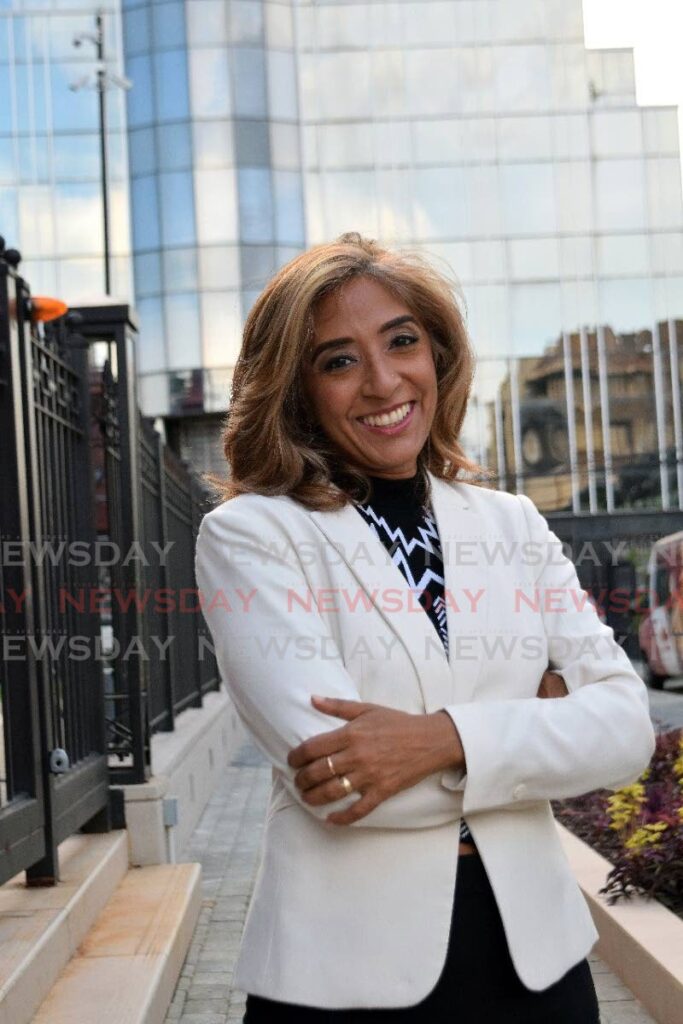Equality: it’s a big deal

DR GABRIELLE JAMELA HOSEIN
WHEN ZIYA was eight years old, she started a little class newsletter. Other classmates joined and divided responsibility for different sections focusing on news, weather and sports. In the few issues they worked on, the boys who were responsible for the sports news only wrote about men’s soccer and sports. This was in a year when Serena Williams and Simone Biles had proven to be some of the greatest athletes of all time.
You need to tell them that their section must feature women as much as men, I said. She refused, preferring to avoid any conversation about it and to accept such invisibility, though she recognised that it was not right.
I couldn’t blame her. First, ensuring equality wasn’t her responsibility, it was also the boys’. Second, appearing to demand that they equally include women’s sports, having to convince boys confident with privilege, and then dealing with possibly being trivialised was more than she was willing to take on.
Third, no one else, not even the other girl in their little group, thought this youthful example of sexism or gender bias was an issue, so she would have been the one making something apparently innocent a big deal. She stayed silent, intimidated by the effort of saying something on her own and against an accepted norm.
Many women understand these hesitations. Many don’t want to take on the responsibility for creating gender equality because they are women. Many don’t want to have to convince other women or men who think that daily inequalities are acceptable or normal, and they stay silent even when activists call on them to act. They don’t want to be the one making something a big deal. Many feel it’s safer to negotiate their lives as best as they can, recognising that feminism isn’t popular or easy.
I was sorry that Zi encountered that experience, one which repeats itself through our lives as women. It is such an inconsequential example, barely worth mentioning, but that’s exactly how inequality normalises privilege, exclusion, stereotypes and silences again and again, through the little injustices perpetuated and left unchallenged and unchanged.
When I think of gender equality, I think of a world in which girls no longer have any such experiences, in all their familiar complexity and momentous triviality. I want a world in which girls and women no longer have to fight for rights, freedoms, safety, legitimacy, recognition or power, whether in sports, workplaces, politics, university curricula, families, the media, religion or simply in public spaces.
In this sense, “equality” isn’t about comparisons with men, trying to be like them or getting what they have, it is about fair access to and sharing of voice and visibility, inclusion and income, leadership and opportunity. It is also about fair sharing of power to decide what is normal in a just, peaceful, inclusive and caring world.
In her little chat group of classmates this year, there’s been homophobic name-calling amongst the boys. I’ve had to explain to her that, at their age, some boys begin to wonder if they are gay and that using homosexuality as an insult is harmful and hurtful. I just ignore the boys, she says, again refusing to say something, though she reposted their group rules regarding being kind.
You can see why feminists turned to laws and policies, which set state and organisational norms and rules, whether regarding discrimination, sexual harassment or violence, so that individual women themselves don’t have to champion what should be collectively agreed.
That’s one of the reasons we celebrate women for International Women’s Day (IWD), precisely because as individuals, associations and movements, they have done so much championing, whether for justice, peace or sustainability. IWD is also a day to recognise that feminist struggles continue so that one day, girls can know what it’s like to never encounter sexism, homophobia, gender stereotyping, (having to be protected from) sexual abuse and the array of harms that result from gender inequality, even before their teens. It’s a day to strengthen courage and resolve.
In Zi’s online experience, both boys and girls were silent about the homophobia by their primary school peers. I think about my daughter, being raised in a feminist family and by two moms, who is getting the message to stay quiet and avoid possible shame about her own reality. International Women’s Day is a moment to remind that this is the world we must change, for girls growing into womanhood, who shouldn’t be able to tell any of these stories.
Diary of a mothering worker
Entry 454
motheringworker@gmail.com


Comments
"Equality: it’s a big deal"